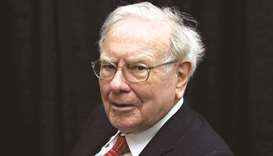[ad_1]
In earlier eras, high financial decision-makers thought of inequality to be distinct from the primary considerations of macroeconomic coverage.
For the reason that Industrial Revolution, the final view has been that, on common, individuals need increased incomes and a bigger variety of good jobs – and that the easiest way to realize these objectives is thru sooner financial development.
Not surprisingly, due to this fact, a lot thought has been dedicated to the query of the way to design and run financial and monetary insurance policies that may maintain increased mixture development charges.
Inequality was considered a separate problem, which could possibly be addressed on the margin via making internet taxes roughly progressive.
Wealthy individuals would contribute a better share of their complete incomes to the general public funds than would the center class.
It’s more and more obvious that there are three major issues with this view of the world, at the least because it applies to the trendy United States.
All three are made totally obvious in Heather Boushey’s sensible new guide, Unbound: How Inequality Constricts Our Financial system and What We Can Do About It.
First, the tax system has ceased to be progressive.
Warren Buffett famously remarked in 2011 that his tax price is decrease than his assistant’s – and this isn’t an remoted incidence.
For the reason that 1970s, efficient taxes on revenue from capital (for Buffett) have fallen dramatically, whereas taxes have remained a lot steadier for wage earners comparable to assistants (together with to billionaires, it seems). If we embody healthcare prices – insurance coverage premiums, deductibles, and out-of-pocket bills – then median take-home pay (out there to spend on the whole lot aside from well being care) has barely budged in latest many years.
There may be nowhere close to as a lot redistribution as there was within the post-World Struggle II many years. (In my guide with Jon Gruber, Leap-Beginning America, we look at the statistics and historical past in additional element.)
Second, the extent of inequality has elevated, owing partly to obstacles to market entry, which additionally undermine financial development.
It’s straightforward to know why Buffett likes investing in firms with “moats” – for instance, in insurance coverage, railways, and different sectors.
Proudly owning corporations which might be troublesome for others to problem is undoubtedly good for his income.
However financial policymakers’ objective shouldn’t be to maximise income for one sector, not to mention one group of traders.
Throughout all the financial system, extra entrepreneurship and extra market entry are inclined to erode incumbents’ income and thus mitigate inequality, as a result of the entry of recent corporations into an trade will possible create extra jobs, increase incomes, and result in new merchandise, higher providers, or each.
Third, inequality has develop into a driver of worsening outcomes in a broader political-economy sense.
When wealthy individuals spend their cash to affect political selections, they don’t usually search to make sure freer entry for others into the sectors that generate their wealth, exactly as a result of that might possible imply much less for them.
Quite the opposite, highly effective incumbents need extra safety from home and international competitors.
Additionally they need extra subsidies, whether or not via the tax code or in any other case.
And their most cherished objective is to develop into too necessary to fail, in order that they’re prone to be bailed out in instances of bother.
Boushey connects these dots in a outstanding and refreshing method.
Even for individuals who have studied the problem, the hyperlinks and particular coverage points she identifies are illuminating.
This isn’t an argument towards markets or towards personal enterprise, but it surely is a vital cautionary story: we get the inequality that we select, no matter whether or not we’re conscious that we’re making a alternative.
Unbound isn’t an explicitly partisan guide, however it’s straightforward to attract inferences for the present political season.
For starters, if the present system is damaged, the simplest and fairest approach to repair it will be with a modest wealth tax.
The specifics may be debated, however a tax on wealth over $50mn would impression solely the richest zero.1% of all People.
Furthermore, if obstacles to market entry have gotten an issue, then we should always change the main target of antitrust exercise to scale back these obstacles in an affordable and well timed method.
If conventional standards, developed in and for the pre-Web period, show cumbersome or ineffective, then we should always replace them.
And if rich persons are shopping for political entry, with the consequence that the financial system is changing into extra distorted and fewer truthful, then we should always change the campaign-finance and lobbying guidelines.
Within the US, a better price of tax on wealth over $1bn (or an analogous very excessive degree) would have an effect on solely about 600 individuals, however it will ship a strong sign that their outsize affect will probably be addressed.
Inequality at fashionable ranges isn’t an accident.
It’s the results of coverage selections that had been influenced or swayed by comparatively wealthy individuals (once more, Unbound has the small print). The pendulum can – and may – swing again within the different route.
Financial policymakers can not afford to view inequality as a problem separate from boosting employment and incomes.
Addressing it via a wealth tax, mixed with more practical antitrust insurance policies and enforcement, has develop into important to sustaining financial development, together with by encouraging the creation and development of recent enterprise. – Challenge Syndicate
[ad_2]








